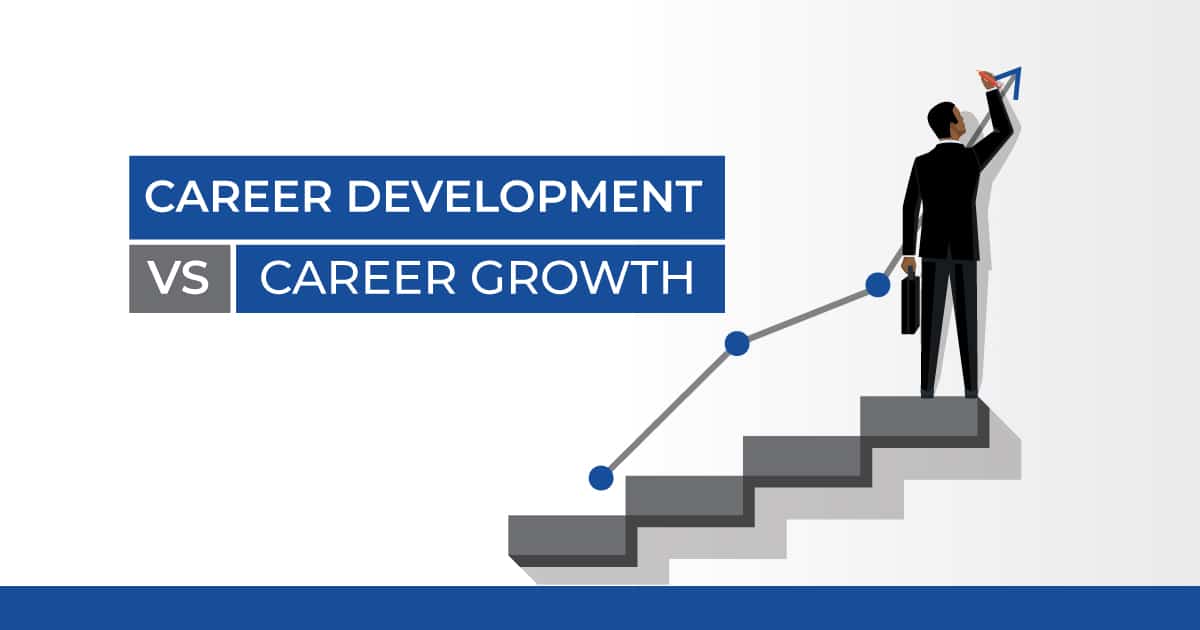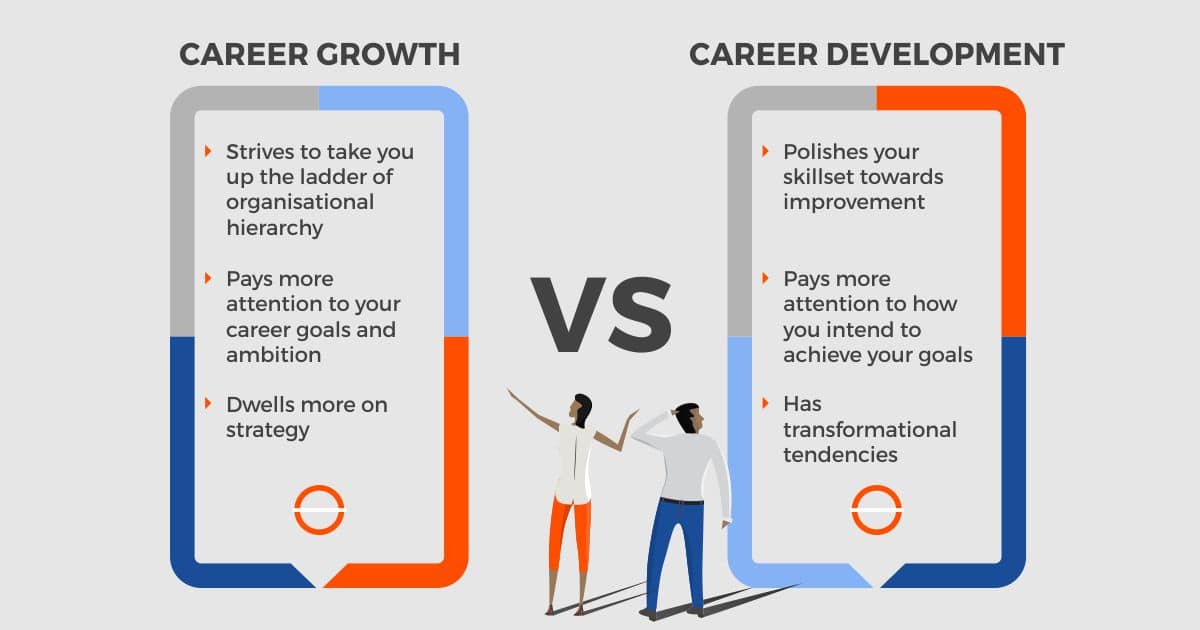
Pitching career growth versus career development doesn’t make them completely unrelated but it doesn’t make them the same thing either. Can they be used interchangeably? The answer is no but they are both very crucial to your career advancement. It’s time to set the records straight – They do not mean the same thing.
We will take a good look at what each one means as well as how they affect your career in the short-term and in the long-term.
What is Career Growth?
Career growth is the process of moving from one point of the corporate ladder to another. One of the most popular ways through which career growth is achieved is through promotions. For example, if you join a trusted recruitment firm as a sales executive and rise through the ranks to become the Lead, Sales Team over a period of 18 months, then this is career growth – Notice how your designation and responsibilities have changed? This is what you achieve with career growth.
If you are hired by a company in 2021 as a creative designer and by 2023, you become the creative director, this is called career growth. This growth is driven by personal goals you set for yourself to move vertically on the ladder of organisational hierarchy.
What is Career Development?
Career development simply refers to the process of getting better at what you do without necessarily getting a promotion. Career development is tied more to your skill set and the ability of you to transform into a point of self-improvement. Career development has to do with making an improvement on your skillset.
Let us look at a few examples – If you join an organisation as a social media manager and 6 months down the line, you have become more proficient in the use of Google Analytics and tools like Sprout Social especially when compared to when you joined the company, this is called career development. Career development makes you more grounded in your area of specialisation.
Professionals Share Their Thoughts on Career Growth and Career Development?
As you can already tell, there’s a clear difference between career growth and career development but this doesn’t mean they’re not connected. However, let’s examine some of the differences between the two as highlighted by some seasoned professionals.
1. Naoufel Bechikh – External Auditor
According to Naoufel Bechikh, an external auditor, career growth refers to your evolution within what he describes as the professional ladder in an organisation where you work. He captured it as a promotion within a company’s hierarchy).
He, however, describes career development as the totality of all the skills you acquire in the course of your professional career.
2. Kevin Mathu – Accountant
Career growth, according to Kevin Mathu, is how you move between jobs within your organisation’s hierarchy. It is usually a strong indicator of your career path in the modern work environment. He describes career development as the things you do to develop and strengthen your career.
3. Sameh Hendawi – Senior Internal Auditor
The financial expert described career development as that which can be achieved through a dedicated effort of improving your skills. This usually has a professional and academic side to it. Career development is not necessarily followed by a progression into a promotion.
He pointed out that career growth is the process of moving a step further through a promotion. Career growth usually comes with additional responsibilities, better remuneration and a designation of a higher cadre on the organisational structure.
4. Shahzad Yaqoob – Senior Accountant
The accountant described both career growth and career development as being interrelated but opted for the Career Lattice explained in Cleaver’s book. According to Cleaver, a career lattice is a diagonal framework that braids lateral experiences, adjacent skill acquisition, and peer networking to move employees to any of a variety of positions for which they have become qualified.
Shahzad goes on to explain that there is a major distinction between both career growth and career development. He submits that career growth relies strongly on career development.
Career development, according to Shahzad, revolves around things you do to enhance your career. This includes formal training in your field of expertise, conferences, webinars, online lectures and opportunities for professional networking.
He added that not all professionals are interested in promotions as part of the career growth. He explained that for those who are interested, the organisations they work for reap a lot of rewards by assisting them to acquire the skills they need to achieve career growth.
Differences Between Career Growth and Career Development?
Both are directly related to your career but as we established earlier, they have several points where they part ways.
Career Growth
- Strives to take you up the ladder of organisational hierarchy
- Pays more attention to your career goals and ambition
- Dwells more on strategy
Career Development
- Polishes your skill-set towards improvement
- Pays more attention to how you intend to achieve your goals
- Has transformational tendencies
The Secret to Career Growth and Career Development
To unlock the full potentials of career growth and career development is to understand that you don’t have to pick one. Rather, strive to strike a balance because both of them work together.
Think of career growth as pepper and career development as salt. When isolated, they are still consumable but together, they form a delicious alliance to make a soup/sauce (you).
If you use too much pepper, your soup will become so spicy, eating it becomes difficult and painful. On your career, this makes your job and workplace relationships unpleasant. If you use too much salt, your soup will taste like a cup of seawater and you are likely to create a mess of the things you need to achieve your professional goals.
How to Achieve Both Career Growth and Career Development
The cardinal rule is to avoid focusing on only one of them. Instead, find a way to give both of them equal attention. When combined, they come together to help you optimise the full potentials of your career.
The ultimate aim of all of these suggestions is to recognize that advancement is only a small part of a career. Organizations that create significant opportunities to develop their employees create a structure where people want to work for the long-term. Those organizations maintain their institutional knowledge and save on the high costs associated with turnover.










